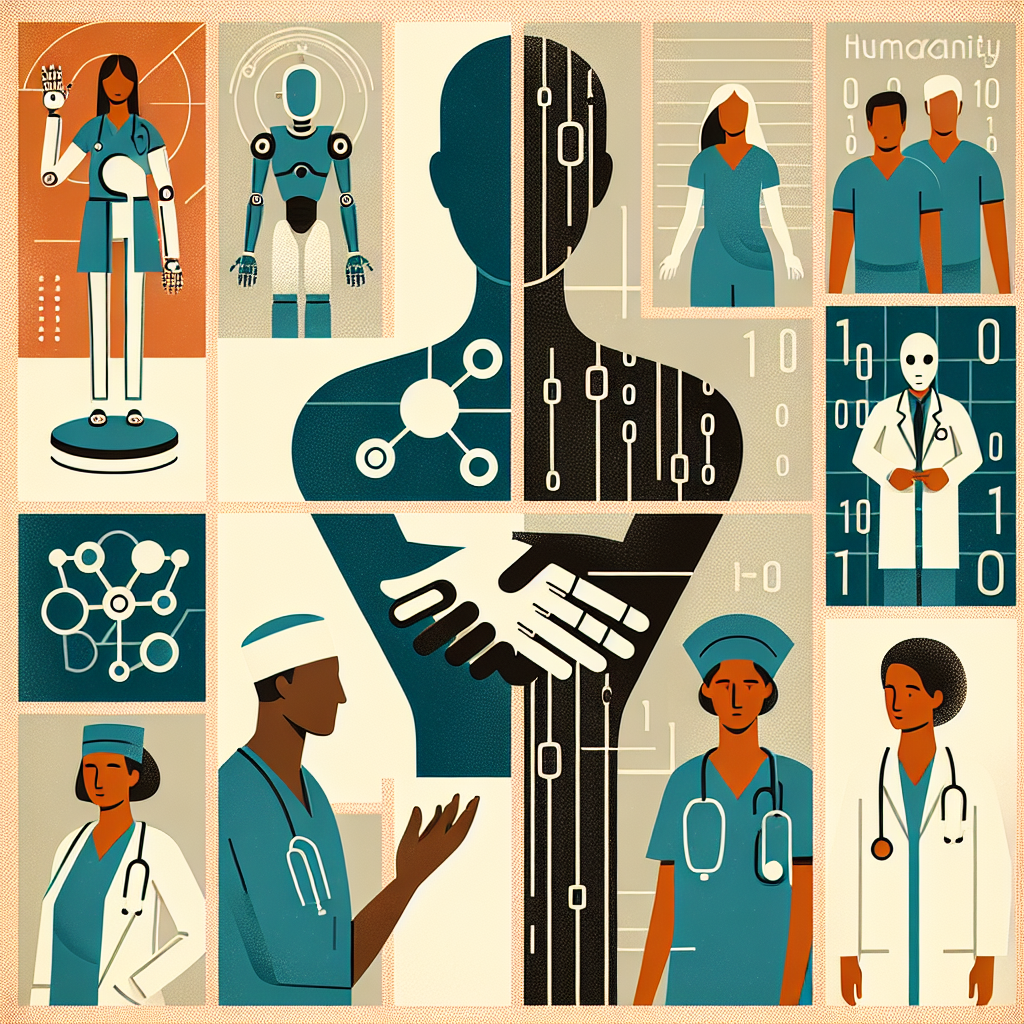Artificial Intelligence (AI) has become an increasingly important tool in healthcare workforce development, offering the potential to improve efficiency, accuracy, and patient outcomes. However, the use of AI in healthcare raises important ethical considerations that must be carefully considered. In this article, we will explore the ethics of AI in healthcare workforce development, including the potential benefits and challenges it presents.
Benefits of AI in Healthcare Workforce Development
There are numerous benefits to using AI in healthcare workforce development. Some of the key advantages include:
1. Improved Efficiency: AI can automate routine tasks, allowing healthcare professionals to focus on more complex and critical aspects of their work. This can help to increase efficiency and reduce the burden on healthcare workers.
2. Enhanced Accuracy: AI algorithms can analyze large amounts of data quickly and accurately, leading to more precise diagnoses and treatment recommendations. This can help to improve patient outcomes and reduce errors in healthcare delivery.
3. Personalized Care: AI can help healthcare providers to better understand individual patient needs and preferences, leading to more personalized and effective care. This can help to improve patient satisfaction and overall quality of care.
4. Cost Savings: By automating tasks and improving efficiency, AI can help to reduce healthcare costs and improve the overall sustainability of the healthcare system. This can benefit both patients and healthcare providers.
Challenges of AI in Healthcare Workforce Development
While AI offers many benefits, there are also significant challenges to consider in its use in healthcare workforce development. Some of the key challenges include:
1. Data Privacy and Security: AI systems rely on large amounts of data to function effectively, raising concerns about data privacy and security. Healthcare organizations must ensure that patient data is protected and used responsibly to avoid potential breaches or misuse.
2. Bias and Discrimination: AI algorithms can inadvertently perpetuate biases and discrimination present in healthcare data, leading to disparities in care. Healthcare organizations must carefully monitor and address bias in AI systems to ensure fair and equitable treatment for all patients.
3. Lack of Transparency: AI systems can be complex and difficult to understand, making it challenging for healthcare professionals to trust and interpret their recommendations. Healthcare organizations must strive to make AI systems more transparent and explainable to ensure their effective use in clinical practice.
4. Regulatory Compliance: Healthcare organizations must navigate a complex regulatory landscape when implementing AI systems, ensuring compliance with laws and regulations governing healthcare data and technology. Failure to comply with regulations can lead to legal and financial consequences.
Ethical Considerations in AI Healthcare Workforce Development
In addition to the benefits and challenges of AI in healthcare workforce development, there are important ethical considerations that must be taken into account. Some of the key ethical principles to consider include:
1. Autonomy: Healthcare professionals must ensure that AI systems do not undermine patient autonomy or the ability to make informed decisions about their care. AI should be used to support and enhance patient autonomy, rather than replace it.
2. Beneficence: Healthcare organizations must prioritize the well-being and best interests of patients when using AI in healthcare workforce development. AI should be used to improve patient outcomes and quality of care, rather than prioritize cost savings or efficiency.
3. Non-maleficence: Healthcare professionals must ensure that AI systems do not cause harm to patients or compromise their safety. AI should be carefully monitored and evaluated to mitigate potential risks and ensure patient safety.
4. Justice: Healthcare organizations must strive to ensure that the benefits of AI in healthcare workforce development are equitably distributed among all patients and communities. AI should not exacerbate existing disparities in healthcare access or quality of care.
Frequently Asked Questions (FAQs)
Q: How can healthcare organizations ensure the responsible use of AI in healthcare workforce development?
A: Healthcare organizations can ensure the responsible use of AI by developing clear guidelines and policies for the use of AI, conducting regular audits and evaluations of AI systems, and providing ongoing training and education for healthcare professionals on the ethical implications of AI.
Q: How can AI help to address workforce shortages in healthcare?
A: AI can help to address workforce shortages in healthcare by automating routine tasks, improving efficiency, and enabling healthcare professionals to focus on more complex and critical aspects of their work. AI can also help to improve the recruitment and retention of healthcare professionals by reducing burnout and increasing job satisfaction.
Q: What are some examples of AI applications in healthcare workforce development?
A: Some examples of AI applications in healthcare workforce development include predictive analytics for workforce planning, virtual assistants for healthcare professionals, and remote monitoring and telemedicine solutions. These applications can help to improve efficiency, accuracy, and patient outcomes in healthcare delivery.
Q: How can healthcare organizations address bias and discrimination in AI systems?
A: Healthcare organizations can address bias and discrimination in AI systems by carefully monitoring and evaluating AI algorithms for bias, diversifying training data to reduce bias, and implementing safeguards to prevent discriminatory outcomes. Healthcare organizations should also prioritize diversity and inclusion in the development and implementation of AI systems.
In conclusion, the use of AI in healthcare workforce development offers great potential to improve efficiency, accuracy, and patient outcomes. However, the ethical considerations surrounding AI in healthcare must be carefully considered to ensure that AI is used responsibly and ethically. By addressing issues such as data privacy, bias, transparency, and regulatory compliance, healthcare organizations can harness the benefits of AI while upholding ethical principles and ensuring the well-being of patients.

